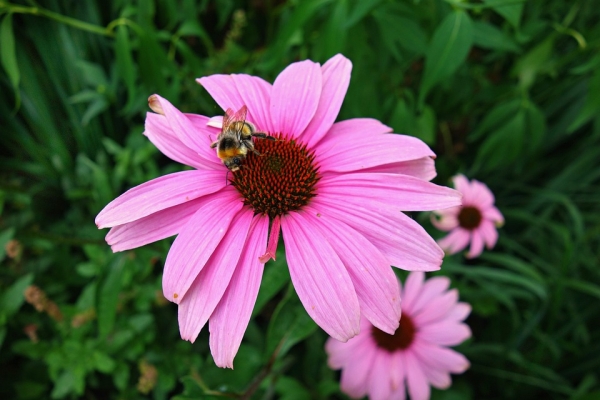It’s common practice for farmers to apply insecticides to their crops, but one University of Guelph research team wants to know if the substances they’re using are pollinator friendly.
Dr. Amanda Liczner studies bumblebee behaviour as a post-doctoral researcher in the School of Environmental Sciences at the Ontario Agricultural College.
She and her research team superglued minuscule radio trackers to eastern bumblebee queens to determine how two insecticides — imidacloprid and cyantraniliprole — affect the insects’ movements and behaviour.
Imidacloprid is one of the three types of neonicotinoids, colloquially known as neonics, currently approved for use by Health Canada. Neonics are a class of insecticides that target the nervous system of an insect. In Canada, neonics are restricted because of the harm caused to wildlife, notably aquatic insects. Neonics are also known to cause high colony losses and significant population threats to bees.
Read more at University of Guelph
Photo Credit: MabelAmber via Pixabay


